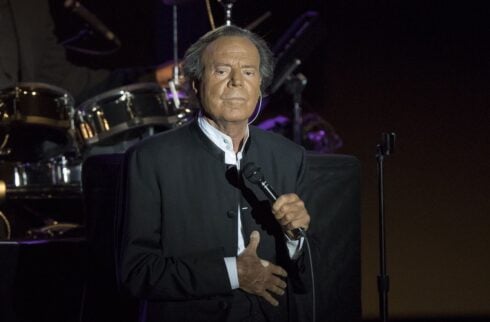AN overwhelming two out of three Spaniards believe political corruption affects their daily lives, the highest such figure in Europe, according to a recent survey by the EU commission.
Some 95% believe corruption in Spain is institutionalised and 77% believe it has got worse over the last three years.
It is little wonder considering both leading political parties have been mired in allegations of corruption over the past decade. And since the notebooks of the former Popular Party (PP) treasurer Luis Barcenas went public exactly a year ago, it has become international news.
Domestically, the so-called Gurtel corruption case has been making headlines since 2009.
However, as yet only two people have been convicted in relation to it and one of them, incredibly, is the Judge who launched the investigation and summoned the arrests of 25 suspects in the first place.
The Gurtel case begins with the former PP Government treasurer, Luis Barcenas.
For as long as Barcenas managed finances for his party, ministers would receive an envelope each month containing between €5,000 and €10,000.
This money came from a secret slush fund, subsidised by a ring of businessmen in return for lucrative contracts.
But come 2009, in strode judge Baltasar Garzon, the people’s favourite judge.
Hell bent on tackling corruption, the so-called ‘superjudge’ became internationally famous when he ordered the arrest of Chilean dictator Pinochet in London and dared to tackle the issue of war crimes against human rights during the Spanish Civil War.
He had soon summoned a host of suspects before his court, including politician Francisco Correa Sanchez, the man whom the entire case is named after.
‘Gurtel’ is the German word for ‘Correa’, belt in English, and it appears this belt was holding up the biggest political corruption scandal Europe has ever seen.
Garzon’s investigation revealed Correa to be the leader of a gang of corrupt businessman who were found to have paid about €7m in kickbacks in exchange for contracts with PP governments in Madrid, Castilla-La Mancha and Valencia.
Correa, himself a businessman, was also accused of bribing officials and politicians with cash, luxury cars, designer clothing, expensive watches and Caribbean holidays.
The case implicated a number of PP politicians, not least Barcenas, who was at first defended by Prime Minister Mariano Rajoy who even hired him an attorney.
But the pressure got too much and with Spain’s main newspapers El Mundo and El Pais giving the case considerable column inches, it wasn’t long before Barcenas was forced to resign.
A year later the investigation took a shocking turn. The crusading Baltasar Garzon – famous for digging his judicial knife into Spain’s most gaping wound, the acts of repression committed by the Franco regime – found himself in the dock.
Garzon was accused of the cardinal sin of legal etiquette ordering the wire-tapping of conversations between Gurtel case defendants in custody and their lawyers and was brought before the Supreme Court.
In February 2012, Spain’s champion of justice was banned from the legal profession for 11 years.
Protesters took to the streets in Madrid to argue that the cases against him were politically motivated. It was an upsurge of public support, which perhaps prevented him from being further investigated for his involvement in highlighting crimes during the Franco era.
But his banning did not stop the investigation from continuing and the case was handed over to Judge Pablo Ruz… and the jamon had soon hit the floor when Swiss investigators uncovered some €24million in bank accounts linked to Correa.
It emerged he had been using a number of fake companies with English names such as ‘Special Events SL’, ‘Easy Concept SL’ and ‘Orange Market SL’ to carry out his corrupt activities.
When the judge set Correa’s bail at €15m it was the second highest in Spanish history, signalling intentions to stamp down hard on the quickly escalating scandal.
However, his legal team appealed the bail price and in 2012 Correa’s mother miraculously found the €200,000 required to get him of jail.
How the government hoped that the investigation would go no further than Correa, but in January last year, the controversy flared up again, and this time much much worse for the already beleaguered PP government.
It came when the investigation revealed that the party’s former treasurer Barcenas held a Swiss bank account containing €22m, which worked as a ‘slush fund’ to provide party officials with kick-backs.
It was at this point that rival newspaper El Mundo unearthed the shady story of the envelopes changing hands and two weeks later, perhaps not to be outdone, El Pais published its famous copies of the alleged ‘ledgers’ of Luis Barcenas, which showed a string of illegal payments dating from 1990 to 2009.
These handwritten notebooks – firmly denied as ‘fakes’ by the government – implicated none other than Prime Minister Rajoy himself.
According to the ledgers he had been on the receiving end of the slush fund cash, specifically an annual sum of €25,200 given to him in cash between 1997 and 2008. Understandably the government was worried.
It was also revealed that Barcenas had used a controversial tax amnesty declared by Rajoy’s Government in 2012 to transfer €10m from Swiss accounts back to Spain, while an HSBC bank account in New York was found to have received €2.5m in 2009 from Barcenas.
Initially, all the implicated PP officials vehemently denied any wrong-doing but as the press turned the heat up on Barcenas he began to lose PP support and eventually admitted to the press that there had been ‘irregular’ funding of the party.
It must have sent a shiver down the spines of the government and within days, PM Rajoy allegedly sent his former treasurer a text message on January 18 which said: “Luis, I understand. Stay strong. I’ll call you tomorrow. A hug.”
But more and more claims kept filtering out and when Barcenas finally came to court to give his initial evidence in June, angry crowds turned up to heckle him and his wife.
It came as Rajoy and his party continued to deny any knowledge of illegal party donations and distanced itself from Barcenas offshore accounts.
Going into full denial mode, the party leader even publicly apologised to the nation in August for having ‘trusted someone who did not deserve to be trusted’, adding that Barcenas was a ‘fantasist’ and a ‘pathological liar’.
It was a dangerous ploy, for in an attempt to play the ‘rogue agent’ card, they were leaving themselves open to be stabbed in the back.
And so it came to pass, one night in Madrid’s Soto de Real prison, when Barcenas decided to reveal the details of the corruption.
In a five hour closed door High Court hearing, the former treasurer spewed out names, dates and details which incriminated many of his former allies.
In a bizarre twist, it made him one of the country’s more popular political characters while Rajoy as the other dramatis personae remain in an embarrassing state of denial.
Fast forward to 2014 and the Gurtel case is still in full swing as former Public Works Minister Francisco Alvarez Cascos is the latest to be outed as corrupt.
A new report reveals he received at least €41,000 in slush fund payments between 2003 and 2004, with his initials conveniently appearing on the accounting ledgers.
With 71 defendants currently being investigated over the Gurtel affair it is difficult to trust anyone in power in Spain, especially considering the ERE scandal that has been consuming the PSOE socialist party in Andalucia.
The investigation is ongoing after five years and will continue for at least another year, it is believed.
It is also easy to understand why 95% of Spanish people think corruption is institutionalised.
And one has to wonder about the kind of padded envelopes the 5% who don’t think corruption is institutionalised might be receiving.
Click here to read more News from The Olive Press.







Clearly summarised and explained. Thank you. We’ll just have to wait to see what happens in the next chapter of this long drawn out tale of greed and corruption.
In any other country, this would have brought down the government. The trial would already have taken place and culprits would have been behind bars but not in Spain.
And we still have the trial of the princess and the duke.
El Fifi, I disagree ~ in other countries the corruption is just as bad but it hasn’t gone to court.
Vote PP !! LEGAL organised crime gang !!